Midwest farmers fear tariff war, while their steelworker neighbors cheer
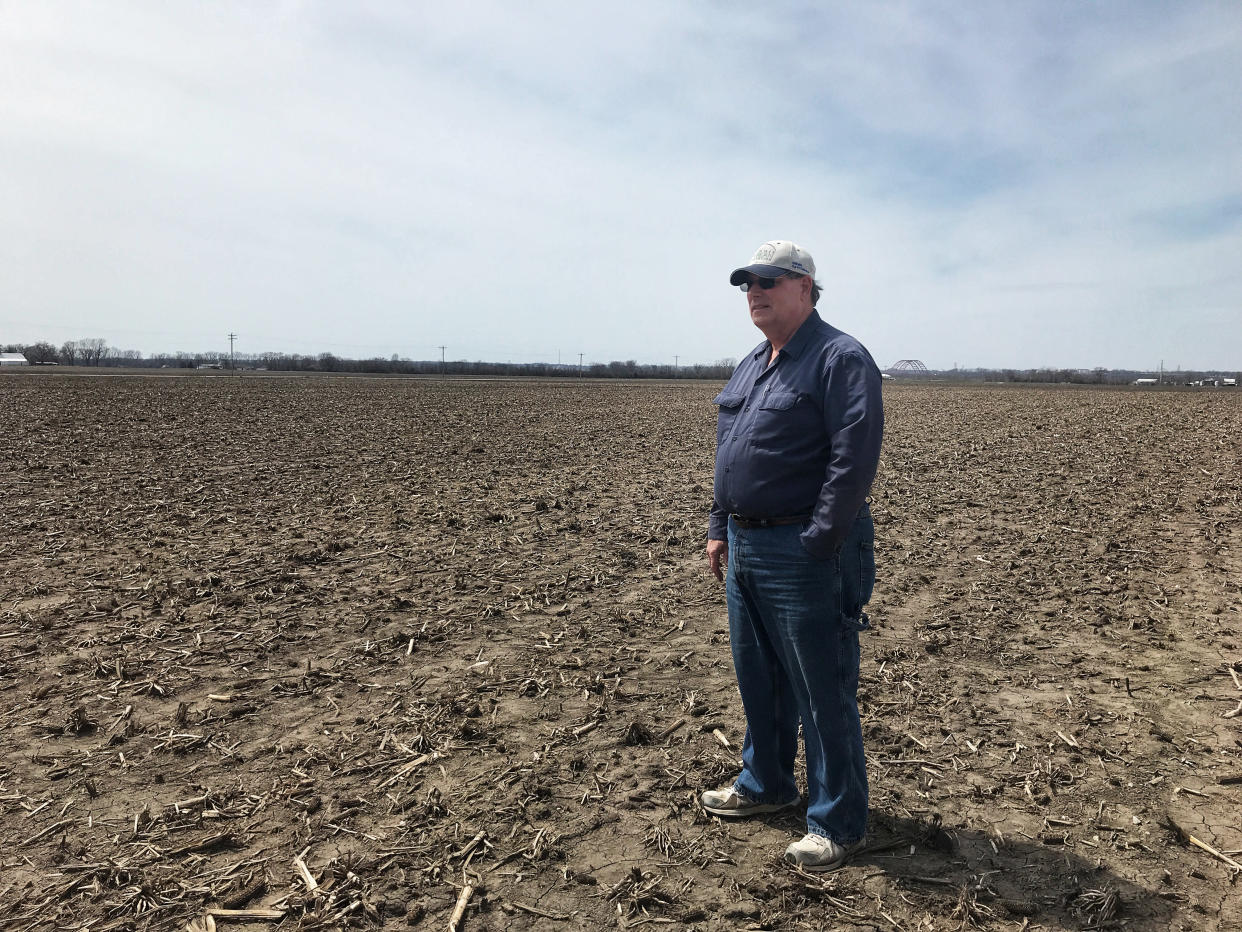
COLUMBIA, Ill. — As Daryl Cates well knows, farming requires a mix of luck and faith. The 62-year-old has spent most of his life working the dark, rich soil of his family’s farm here a little over a mile east of the Mississippi River, in rural southern Illinois.
For four generations, the Cates family survived the whims of Mother Nature, from epic drought to the “great flood” of 1993, when the rain-swollen Mississippi burst its banks and destroyed thousands of acres of farmland here. This spring, the weather has been rainy and colder than usual — conditions that could force Cates to delay his annual planting of corn and soybeans, which usually begins in mid- to late April.
Farming requires the ability to be “calm and steady” and prepared to handle “whatever the weather throws at you,” Cates said, as he walked through one of his muddy fields on a recent afternoon. “That’s the life.”
But these days, he’s is dealing with more than just the unpredictability of nature. Like other farmers here in this deeply agricultural region, he is worried about a potential trade war with China as President Trump moves to deliver on a campaign promise to crack down on a rising superpower that he has described as an “economic enemy” of the U.S.
After spending much of his White House bid railing against China for currency manipulation and trade practices that he has said is responsible for killing thousands of American jobs and costing billions of dollars in lost revenues, Trump last month issued a 25 percent duty on global steel imports and a 10 percent duty on aluminum. The policy, which exempts allies like the European Union, Australia, South Korea, Brazil, Argentina, Canada and Mexico, was widely perceived as a slap at China. It was followed weeks later by another sweeping set of tariffs on roughly $60 billion in Chinese goods, including computers and other electronics, as punishment for what the Trump administration described as “decades” of intellectual property theft from U.S. companies by the Chinese.
Trump’s trade moves had instant results. On the same day the White House announced the steel and aluminum tariffs, United States Steel announced it would reopen one of two idled blast furnaces at its plant in Granite City, Ill., across the Mississippi River from St. Louis, where more than 2,000 workers were laid off two years ago. The move would result in 500 new jobs in coming months — a much-needed boost for a region that has been hard hit by a downturn in manufacturing.
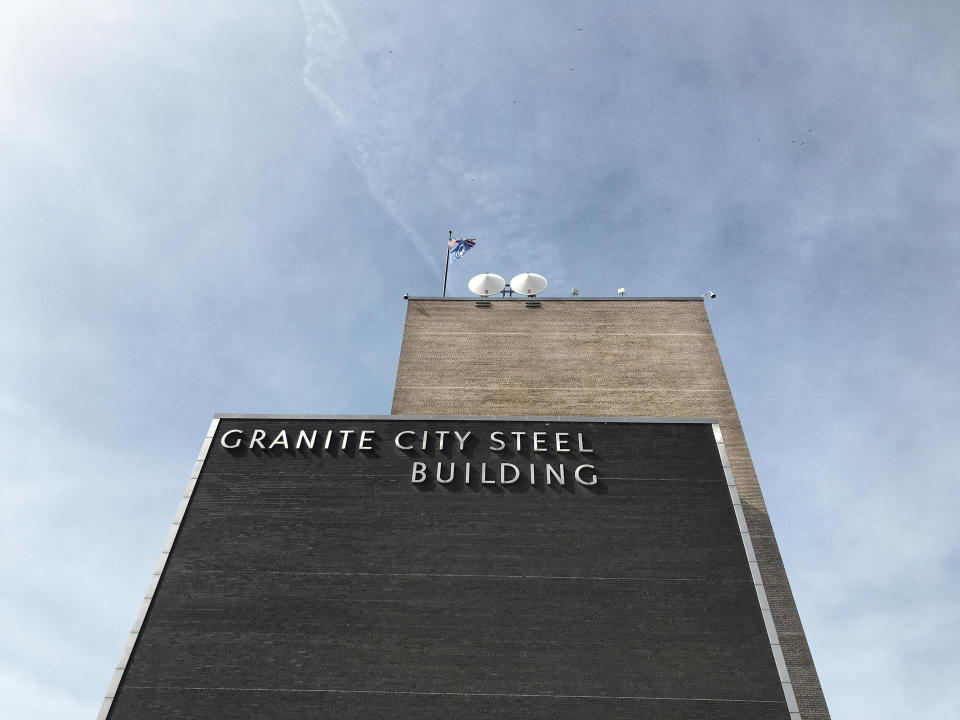
Trump and his aides immediately seized on the news, citing Granite City as proof that his economic policies are working. “It’s about JOBS JOBS JOBS for our incredible workers and putting AMERICA FIRST!” Trump tweeted.
While Trump’s crackdown on China was cheered in the northern part of Illinois’s 12th Congressional District, where Granite City Steel is located, there was a much more tempered reaction just 20 miles to the south, where soybean farmers like Cates count China as one of their most important trading partners. In retaliation to Trump, China announced it was considering trade penalties of its own against U.S. agricultural goods, including a 25 percent tariff on American soybean imports — a potentially devastating move for Illinois farmers who worry they could lose one of their biggest export markets.
“It makes you nervous, really nervous,” Cates said. “We’re not sitting on an island where you’re just worried about the United States. We’re looking at the world. The world is our market. …If you lose a customer, a big customer like China, they are going to start buying somewhere else, and that’s a huge issue for us.”
According to the Department of Agriculture, roughly half of U.S. soybean exports, some $14 billion worth, went to China in 2017. One third of the total U.S. crop was sold to China, which buys whole soybeans to feed its rapidly expanding pork industry. In Illinois, the top producing soybean state in the country for the last four years, more than 25 percent of the harvest went to China last year, amounting to roughly $2 billion in sales, according to the Illinois Soybean Association.

The threat of becoming pawns in a trade war with China has sparked fears among farmers who already deal with more than their share of uncertainty about weather conditions and crop prices. They monitor Trump’s tweets on trade as closely as the local forecast, worried about what that storm could mean for them.
And perhaps nowhere is that tension more defined than in Illinois’s 12th Congressional District, where farmers find themselves pitted against another pillar of the local economy, the steel industry. Even though the Trump administration’s moves against China are more sweeping, farmers ask whether adding 500 jobs at the steel plant is worth the damage it may do to agriculture.
“I feel sympathy for steel workers, I really do. We need industry in this state and in this country,” said Leon McClerrin, a soybean farmer from Benton, Ill., who is president of the Franklin County Farm Bureau. “But farmers are fighting to survive, too, and some are just not as sympathetic as I am to the need to have balance between industry and agriculture.”
It’s a dynamic that is playing out in many states with potentially far-reaching political effects if China carries out its tariff threats. A trade war could test Trump’s support among farmers, many of whom backed his insurgent bid for the presidency and have cheered his rollback of environmental regulations and his tax plan. In southern Illinois, a historically Democratic region with many unionized jobs in mining and manufacturing, Trump won counties that had been carried by President Barack Obama in the previous two elections.
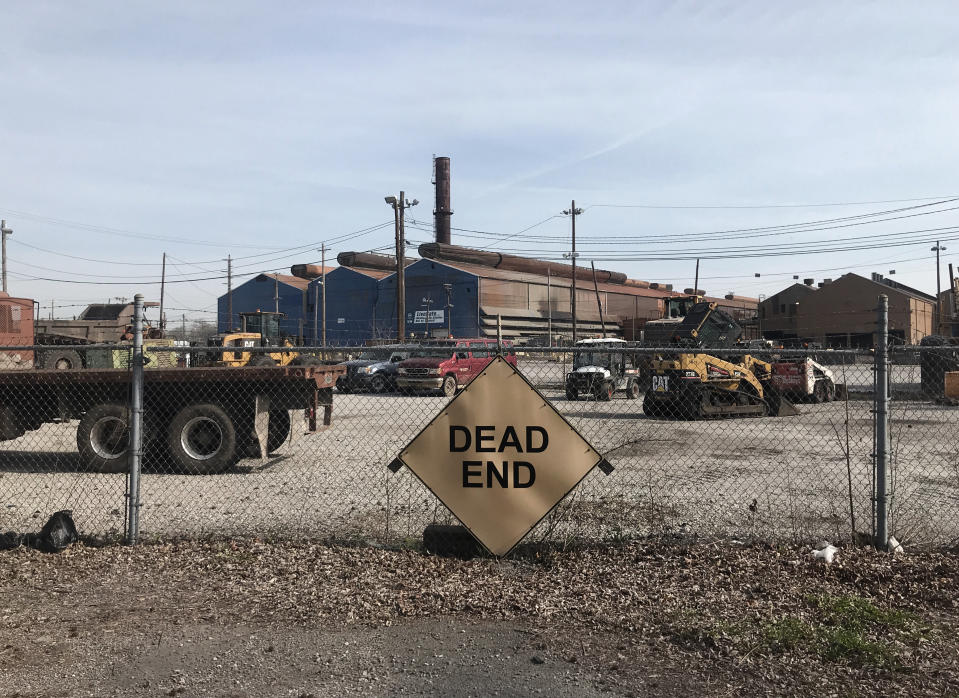
But Trump’s tough trade talk has alarmed farmers. In addition to concerns over China, agricultural interests have been frustrated by Trump’s back and forth on the Trans Pacific Partnership. After withdrawing from the treaty soon after taking office, Trump reportedly asked aides last week on how to opt back in, then sent a tweet Tuesday that seemed to signal he was reverting to his opposition. Farmers are also wary of his threats to exit the North American Free Trade Agreement (NAFTA). Illinois farmers export pork, soy and corn to Mexico, where officials have suggested they may look to South America for those commodities amid concerns that the U.S. may no longer be a reliable trading partner. The uncertainty has caused turmoil in the agriculture markets, where prices have fluctuated in recent weeks, and shaken an industry that has been having trouble attracting young people.
“Farmers aren’t making more money under Trump, and what’s happening right now is probably not going to change that,” McClerren said.
Locally, that trade issue has put pressure on the local congressman, Rep. Mike Bost, a two-term Republican who faces a tough reelection fight this fall. While many Republicans in Washington have criticized Trump’s tariffs, including GOP lawmakers representing rural America, Bost has enthusiastically supported the president’s efforts, crediting him for helping to revive the Granite City mill and restore steel industry jobs in his district and across the country. That earned him a shout-out from Trump on Twitter.
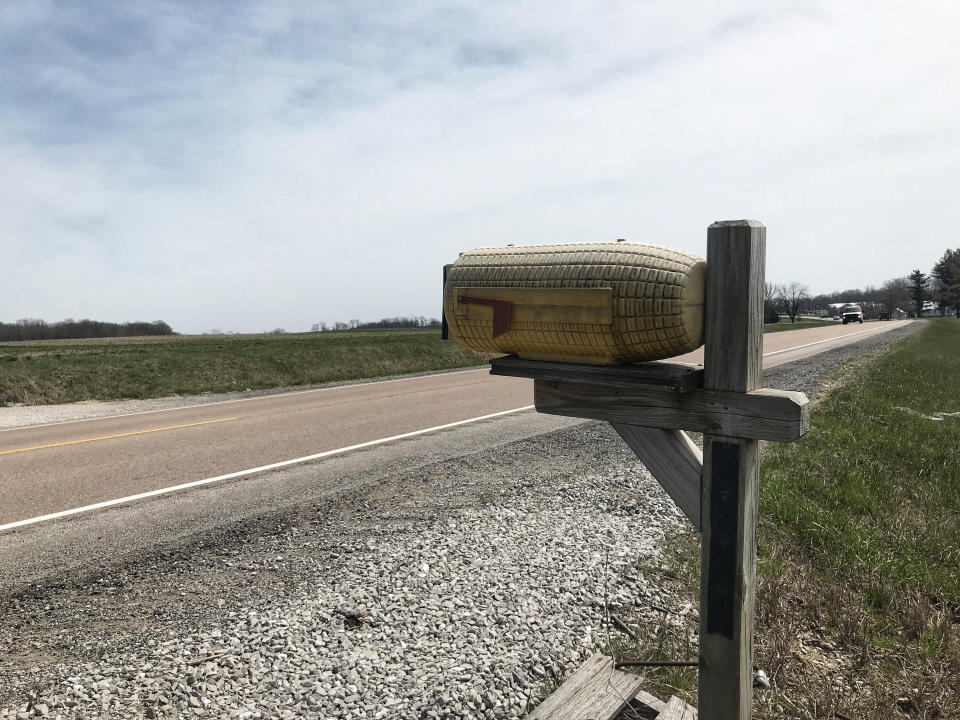
But he’s faced a trickier path after China announced it might retaliate against farmers. In an interview with the Belleville News-Democrat, a local paper in his district, he defended Trump’s trade moves against criticism from farmers, warning against a “knee-jerk” reaction to China’s tariff threats. He questioned if China will even carry them out, though he said he would work with farmers in his district to “develop” other markets “where we can” just in case.
“I’ve always been working with my farmers, I will continue to work with my farmers, but I believe this is a balance that has to occur,” Bost said.
While Bost was praised by name by the executives of U.S. Steel for his help in encouraging the Trump administration’s efforts on China and trade, it’s unclear whether it will help him in his race for reelection. The local chapter of the United Steelworkers union has endorsed his Democratic opponent, Brenden Kelly, the St. Clair County state’s attorney.
In Washington last week, Trump acknowledged that farmers could take a hit from his crackdown on China but that they would ultimately “understand” and fare better in the long term.
“These are great patriots. They understand that they’re doing this for the country,” Trump said. “And we’ll make it up to them. And in the end, they’re going to be much stronger than they are right now.”
Asked about Trump’s comments, Cates offered an uneasy smile. Though he declined to say whether he voted for Trump in 2016, he said he does support him. “He is our president, and I do support the president, whoever is in office,” he said. “All the farmers, we are patriots. … Some things have to take place with China. I just hope it’s not the ag industry that takes the brunt of this. …We’ve got to hope that better minds prevail in the end on this thing.”
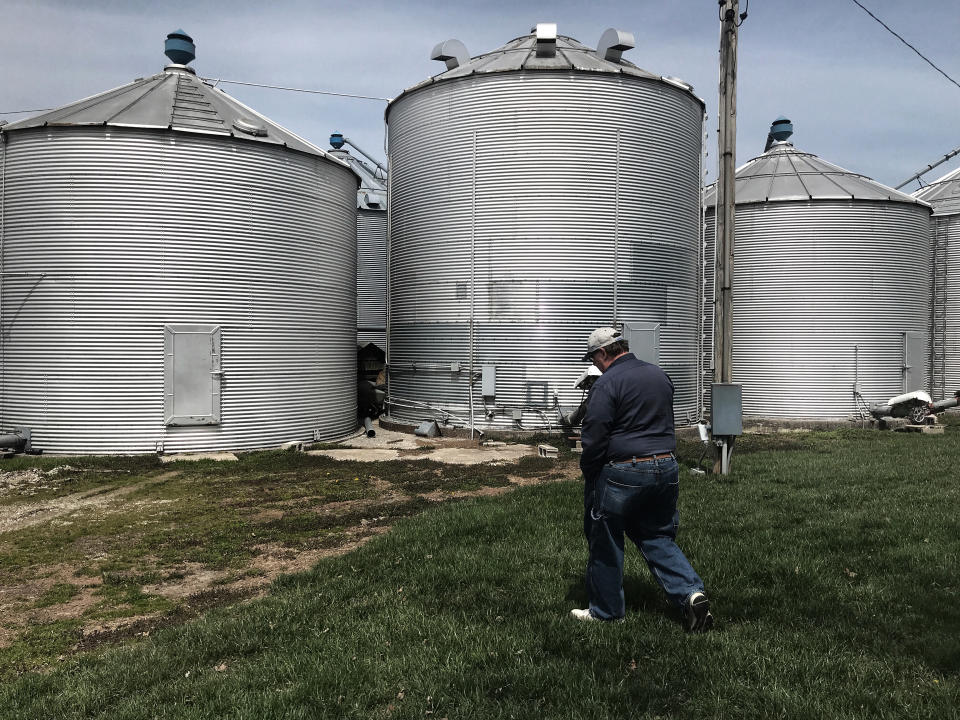
_____
Read more from Yahoo News:



